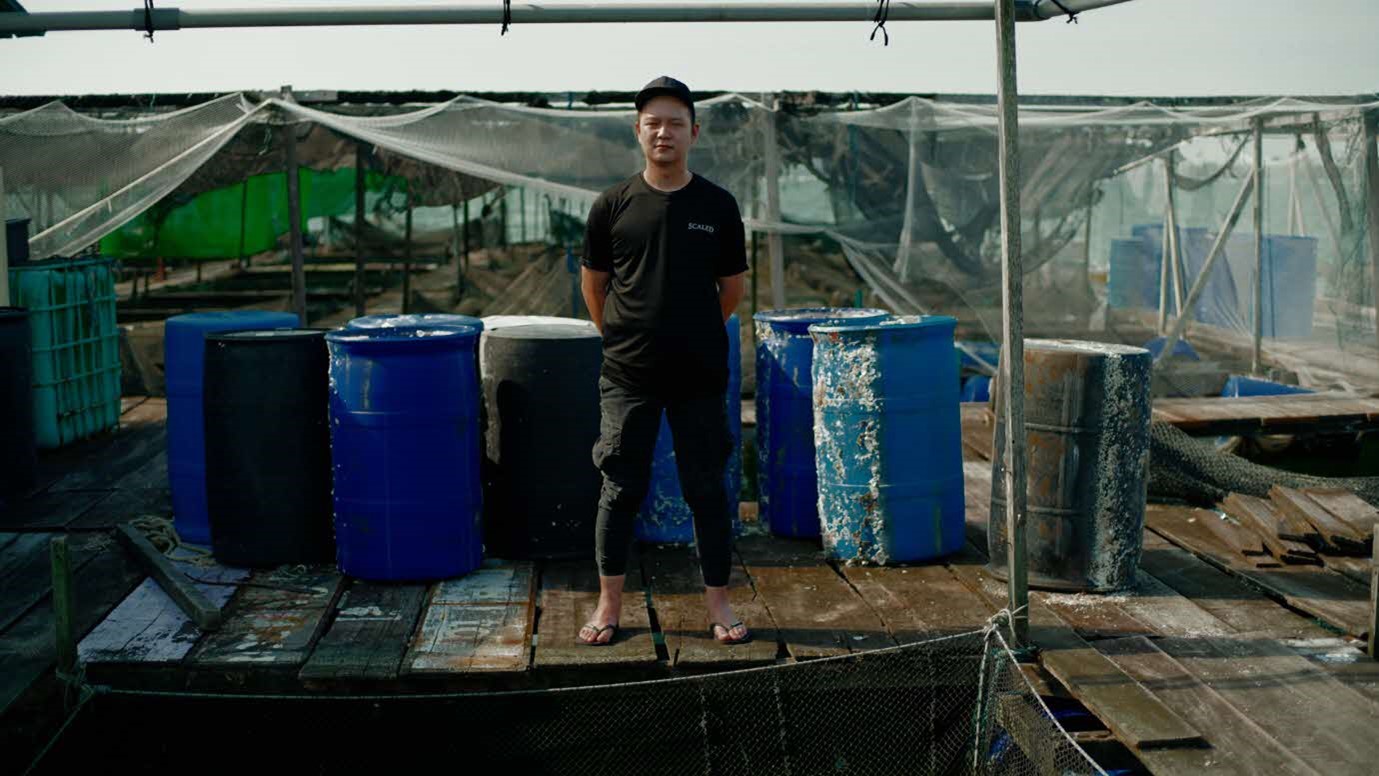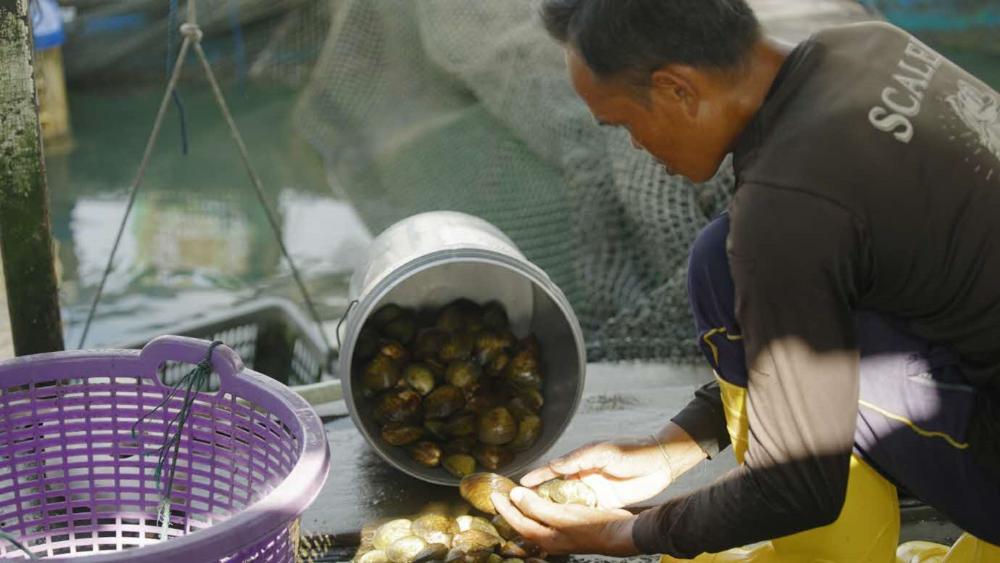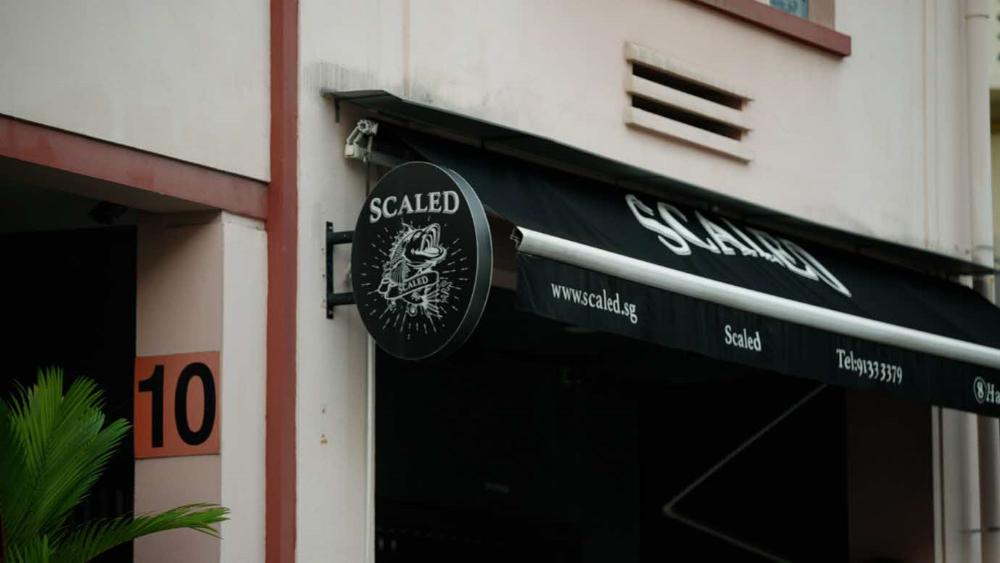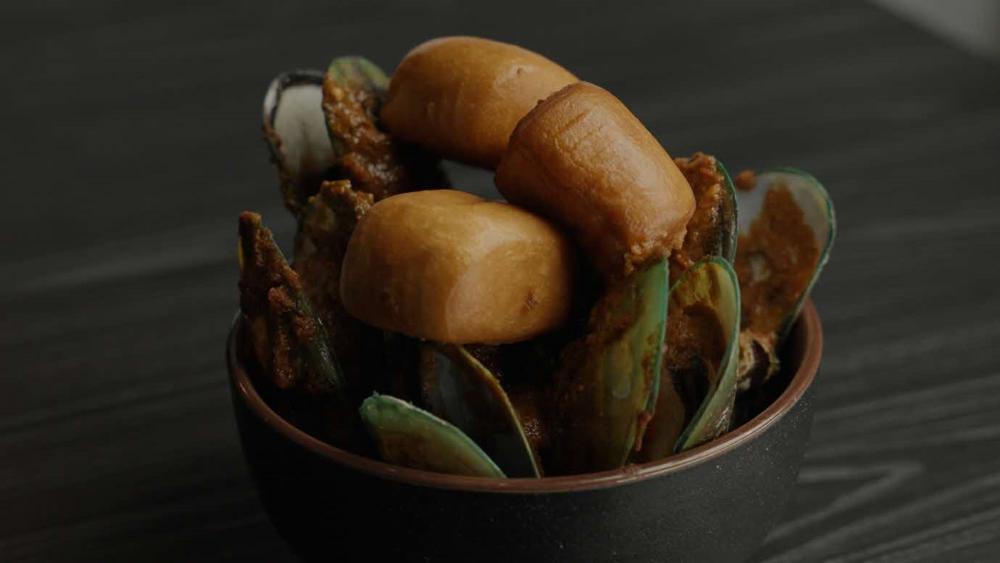Go on a Singapore seafood adventure from fish farm to table

Ah Hua Kelong is taking Singapore’s fishing traditions forward for a new generation
In urban Singapore, one might not expect the "catch of the day" to actually mean seafood caught that day.
But one fish farm in Singapore is hoping to turn those expectations around.
“Everything that we produce here is out on the same day. The tagline here is ‘harvest by sunrise, deliver by sunset’,” says Wong Jing Kai, one of the young entrepreneurs behind Ah Hua Kelong.
In fact, he’s so committed to that promise that there are no chillers on the farm for storage.
Ah Hua Kelong sits at the northern tip of the island. Its daily catch includes seabass, mussels and flower crabs.
Getting the catch of the day from Singapore’s own waters not only helps with freshness, it helps reduce the overall carbon footprint of our seafood – something that’s becoming more and more important to conscious consumers.

“Why are we not going to a source near to us to get freshness and quality? We’re trying to build up that food source here for the next generation so hopefully they take more pride in what we have (locally) and that can be found on our own shores,” Jing Kai says.
A history worth sustaining
Farms like Ah Hua Kelong – offshore platforms commonly found in Southeast Asia – have a strong connection to the past, harking back to Singapore's earliest inhabitants, the orang laut or sea gypsies, who lived off the sea's bounty.
But with modern methods today, overfishing has become a global sustainability issue.
Jing Kai shares that before there was a better understanding of ethical farming, there was little to no awareness of preserving seafood for the next generation, and previous generations of fishermen assumed that the seas’ population would be able to sustain itself.
Beyond its farms, Ah Hua Kelong catches wild seafood from the fringes of the kelong, but approaches it ethically, by releasing any pregnant wild-caught crabs back into the sea to spawn.
When the pandemic hit, Jing Kai shared that like all F&B businesses they “got hit real bad, real quick”.
That’s when they had to pivot to home deliveries, and managed to do so with the help of a Temporary Bridging Loan from DBS, which he applied for and got approved fast.
“That really tied us through the initial phases”, Jing Kai said.

Get exclusive partner deals on hotel stays and unique experiences with DBS/POSB cards. Check out how you can Live more SG now!
Closing the loop
In 2018, Jing Kai opened Scaled by Ah Hua Kelong, the first fish-farmer-owned restaurant in Singapore to serve locally-farmed seafood.

“We pride ourselves as a restaurant that has its own farm, cooks its own food, in our own style,” says Jing Kai, who has a vision of bringing diners closer to the ingredients Singapore has to offer.
The dishes at Scaled are diverse and aren’t tied to any cuisine. You’ll find curry mussels served with fried mantou (small sweet buns) that soak up the spicy, briny sauce, served next to a Japanese-inspired prawn dashi aglio olio.
Tightening the demand-supply feedback loop in this farm-to-table business concept, Scaled is able to source and supply responsibly while reducing overall food waste.

In a time of pressing environmental issues, the need to support sustainable practices in food production cannot be overstated. Businesses like Ah Hua Kelong and Scaled not only provide a unique culinary experience, but also safeguard the seafood pleasures we might take for granted today, for the future.